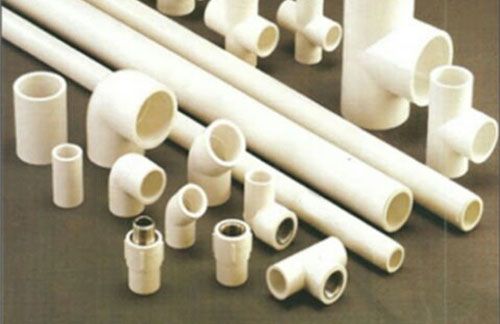In Pakistan’s growing construction and infrastructure sector, uPVC pipes have become one of the most widely used materials for plumbing, water supply, and drainage systems. Known for their durability, cost-effectiveness, and resistance to corrosion, uPVC (unplasticized polyvinyl chloride) pipes are now replacing traditional metal and concrete piping across the country. Whether you are building a home, setting up an irrigation system, or upgrading drainage lines, understanding the benefits of uPVC pipes in Pakistan will help you make the right decision.
What Are uPVC Pipes?
uPVC stands for Unplasticized Polyvinyl Chloride, a strong and rigid plastic material. Unlike traditional PVC, uPVC is free from plasticizers, which makes it stronger, more durable, and safe for water transport. In Pakistan, uPVC pipes are widely used for residential, commercial, and industrial purposes because they provide long-term reliability with minimal maintenance.
Why uPVC Pipes Are Popular in Pakistan
There are several reasons why uPVC pipes have gained popularity in Pakistan:
- Durability: Resistant to corrosion, rust, and chemical reactions, unlike steel or iron pipes.
- Cost-Effective: Affordable installation and low maintenance costs.
- Safe for Drinking Water: Non-toxic material ensures water quality.
- Lightweight: Easy to transport and install, reducing labor costs.
- Weather Resistance: Ideal for Pakistan’s extreme weather conditions, from scorching summers to monsoon rains.
Common Uses of uPVC Pipes in Pakistan
1. Residential Construction
- Plumbing for bathrooms and kitchens.
- Underground water supply lines.
- Wastewater and drainage systems.
2. Agriculture and Irrigation
- Irrigation channels for farms.
- Borehole and tube-well water systems.
- Affordable solution for small-scale farmers.
3. Commercial and Industrial Applications
- Factories use uPVC pipes for chemical transport.
- High-rise buildings rely on them for water distribution.
- Drainage and sewage systems in urban projects.
uPVC Pipes vs Other Pipe Materials
| Feature | uPVC Pipes | Steel Pipes | Concrete Pipes |
|---|---|---|---|
| Durability | 40+ years | 15–20 years | 20–25 years |
| Rust/Corrosion | No | Yes | Possible |
| Cost | Affordable | Expensive | Moderate |
| Maintenance | Low | High | Medium |
| Water Quality | Safe | Can contaminate | Neutral |
From this comparison, it’s clear why uPVC pipes are preferred in Pakistan’s modern construction projects.
Cost of uPVC Pipes in Pakistan
The price of uPVC pipes in Pakistan depends on brand, size, and thickness. On average:
- ½ inch to 1 inch uPVC pipe: PKR 100 – 250 per meter
- 2 inch to 4 inch uPVC pipe: PKR 300 – 700 per meter
- Large diameter (6 inch and above): PKR 1,000+ per meter
💡 Pro Tip: Always choose high-quality, branded uPVC pipes for long-term savings. Cheap, low-quality alternatives may crack under pressure and require frequent replacement.
Top uPVC Pipe Brands in Pakistan
Several companies manufacture and supply uPVC pipes in Pakistan. Some of the most trusted names include:
- Prestige Plastics (high-quality, durable piping solutions).
- Popular Pipes Group.
- Pak Arab Pipes.
- GFC Pipes.
- Master Pipes.
Each brand offers different grades and sizes of uPVC pipes suitable for various applications.
Advantages of uPVC Pipes for Pakistan’s Climate
- Heat Resistance: Withstands high summer temperatures without deforming.
- Water-Resistant: Perfect for areas affected by heavy monsoon rainfall.
- Longevity: Can last up to 50 years if properly installed.
- Eco-Friendly: Recyclable material, making it a sustainable choice.
Installation and Maintenance Tips
- Hire skilled plumbers for proper installation.
- Avoid exposure to direct sunlight during storage.
- Use compatible fittings and joints to prevent leakage.
- Regularly check underground lines for pressure damage.
Frequently Asked Questions (FAQs)
Q1: Are uPVC pipes safe for drinking water in Pakistan?
Yes, they are non-toxic and safe for transporting clean water.
Q2: Can uPVC pipes handle hot water?
They are suitable for cold and moderate temperature water. For hot water, CPVC pipes are recommended.
Q3: How long do uPVC pipes last in Pakistan?
On average, 40–50 years with proper installation.
Q4: Are uPVC pipes better than GI pipes?
Yes, they are more affordable, rust-free, and longer lasting.
Final Thoughts
In Pakistan’s rapidly growing construction and agricultural sectors, uPVC pipes have become the number one choice for plumbing, water supply, and drainage systems. Their durability, affordability, and resistance to corrosion make them an ideal solution for residential, commercial, and industrial projects alike. By choosing the right brand and ensuring proper installation, homeowners and builders can benefit from reliable water systems that last for decades.
If you are planning a construction project, upgrading your plumbing, or setting up an irrigation system, uPVC pipes in Pakistan provide the perfect balance of quality, cost-effectiveness, and long-term performance.


















